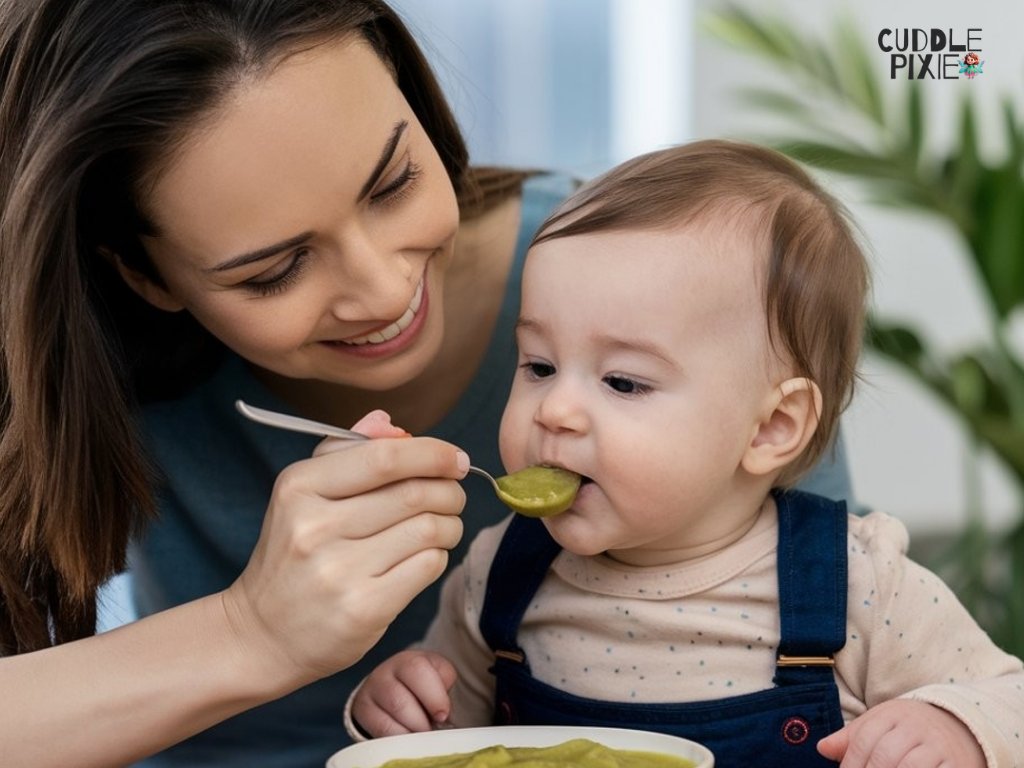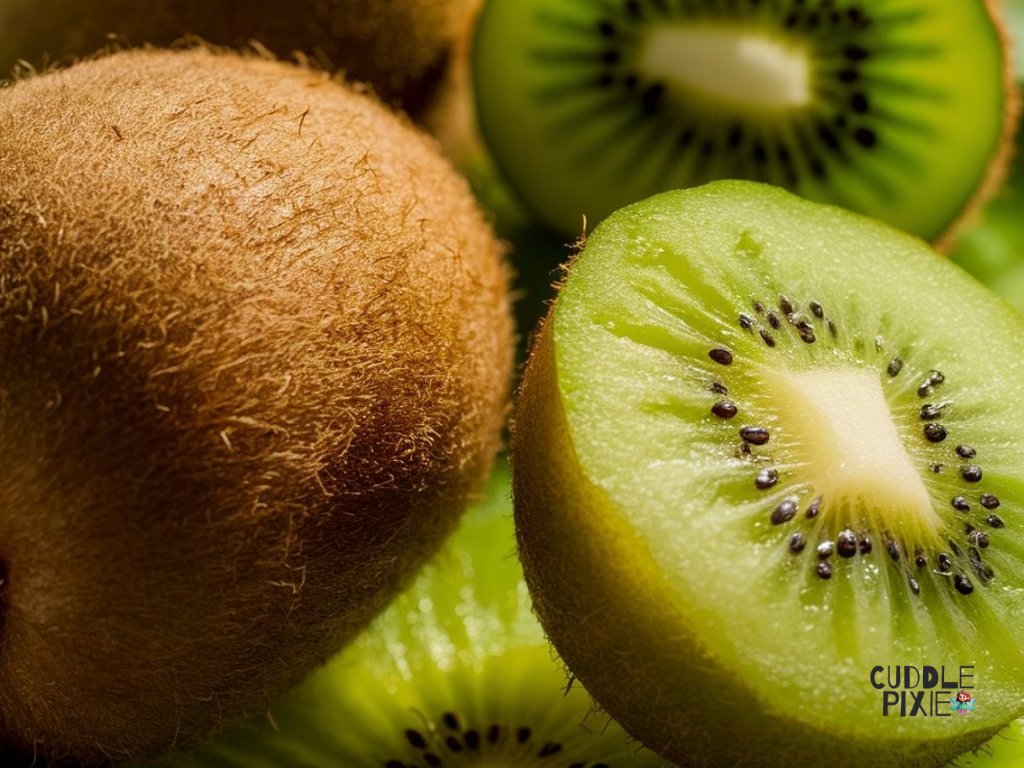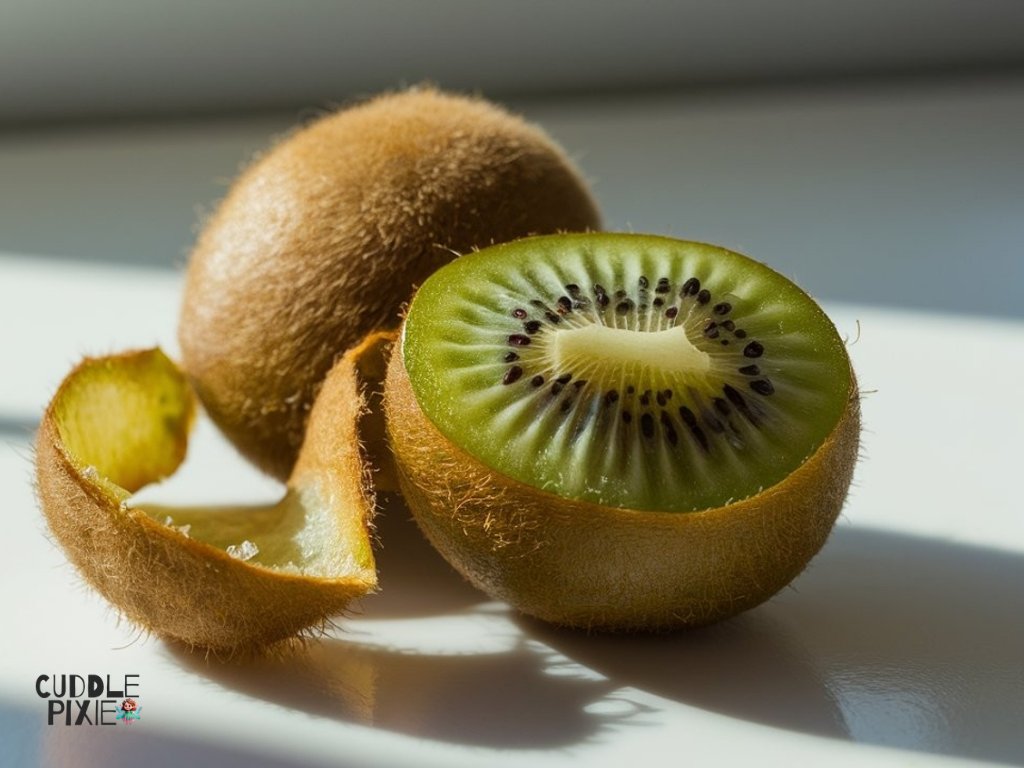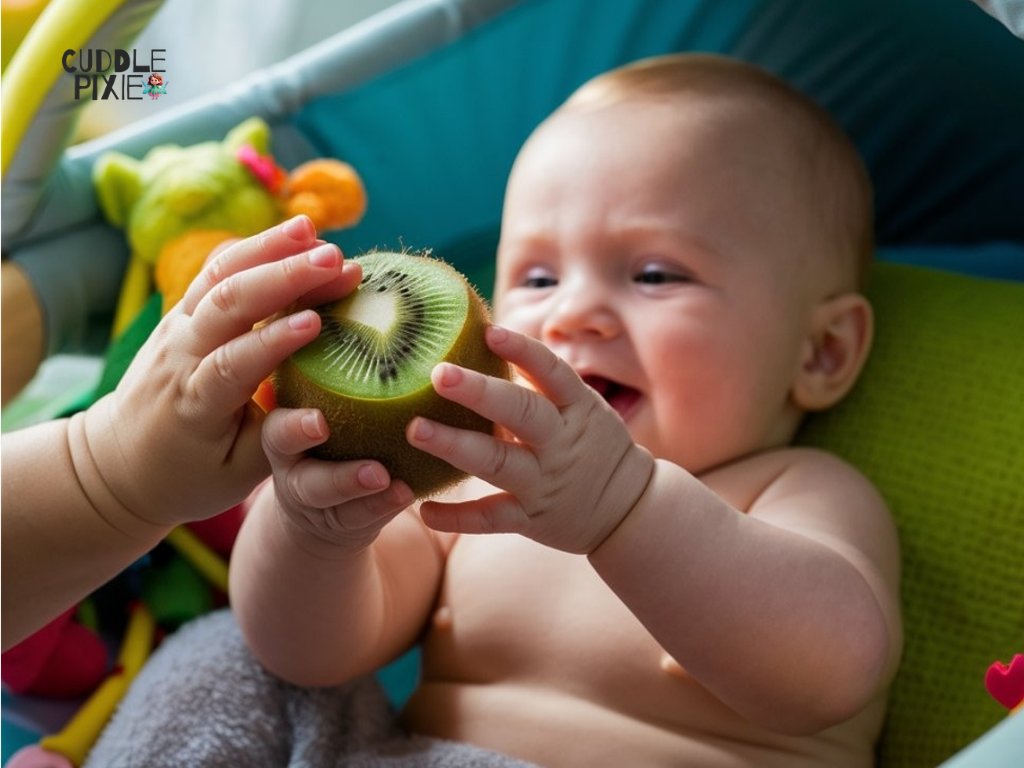Introducing solid foods to your baby is a significant milestone that brings excitement and a host of questions for parents. One such question is whether kiwi, a nutrient-rich and flavorful fruit, is suitable for babies and if so, how to introduce it safely. This article delves into the optimal timing, preparation methods, nutritional benefits, and potential risks associated with giving kiwi to babies. Expert insights from pediatricians, nutritionists, and parenting consultants will provide comprehensive guidance to ensure your baby enjoys this delightful fruit safely.
In This Article
Nutritional Benefits of Kiwi for Babies
Kiwi is a small fruit packed with essential nutrients that can be highly beneficial for a baby’s growth and development. Key nutrients found in kiwi include:
- Vitamin C: Boosts the immune system, aids in iron absorption, and promotes healthy skin and tissue repair.
- Vitamin K: Plays a crucial role in blood clotting and bone health.
- Vitamin E: Acts as a powerful antioxidant, protecting cells from damage.
- Potassium: Helps regulate fluid balance, nerve signals, and muscle contractions.
- Folate: Vital for cell growth and the formation of DNA, especially important during rapid growth phases.
- Fiber: Supports digestive health and can help prevent constipation.
The high antioxidant content in kiwi helps combat oxidative stress, promoting overall health and well-being. Incorporating kiwi into your baby’s diet can be a natural and delicious way to enhance their nutrient intake and support their development.
Is Kiwi Safe for 6-Month-Old Babies?

Stephanie Edenburgh, a parenting expert at Bizzie Mommy, asserts that kiwi is suitable for babies as young as six months, provided it is introduced correctly. At this age, most babies are ready to explore new tastes and textures, making it an ideal time to introduce kiwi. It’s essential to ensure the fruit is ripe and properly prepared to avoid any potential issues.
Introducing kiwi at six months aligns with the typical age when babies start on solid foods, following the exclusive breastfeeding or formula-feeding period. Ensuring the fruit is appropriately prepared can make the introduction smoother and safer.
How to Nutritional Benefits of Kiwi for Babies
Proper preparation of kiwi is crucial to ensure it is safe and easy for babies to eat. Here are some steps to follow:
- Peeling: Remove the skin entirely to avoid choking hazards and potential irritation from the fuzzy exterior.
- Pureeing: For younger babies, especially around six months, mashing or blending the kiwi into a smooth puree is recommended. This makes it easier for them to swallow and digest.
- Cutting: As babies grow older and develop better chewing skills, you can cut the kiwi into small, manageable pieces. Ensure the pieces are soft and appropriately sized to prevent choking.
When introducing kiwi, it’s beneficial to mix it with other fruits like banana to balance the acidity and create a milder taste, which can be more appealing to babies. Blending kiwi with other fruits can also add variety to your baby’s diet and help them accept new flavors more readily.
Potential Risks and Considerations
While kiwi is highly nutritious, there are some considerations to keep in mind:
Acidity
Kiwi’s acidity might cause minor irritation or a harmless rash around the mouth. If you notice any reaction, consider mixing kiwi with less acidic fruits. Acidic foods can sometimes be mistaken for allergens due to the irritation they cause, so it’s important to monitor your baby’s reaction carefully.

Choking Hazards
Kim Grenawitzke, a pediatric feeding and swallowing specialist, advises that kiwi can be firm and slippery, increasing the risk of choking. To mitigate this risk, ensure the kiwi is fully ripe, soft, and cut into age-appropriate pieces. Supervise your baby during mealtime to create a safe eating environment. It’s crucial to stay within arm’s reach of your baby to intervene quickly if needed.
Allergies
Although kiwi is not a common allergen, it can cause allergic reactions in some babies. Dr. Sakina Bajowala, a pediatric allergist, notes that allergies to kiwi are increasing. Symptoms can range from mild itching and rashes to more severe reactions. It’s also important to be aware that individuals with latex-fruit syndrome or Oral Allergy Syndrome may have sensitivities to kiwi.
Enzyme Reactions
Kiwi contains enzymes called proteases, which can break down proteins in the mouth and cause irritation or bleeding if the kiwi is consumed when not fully ripe or in excess. To limit these reactions, ensure that you only serve fully ripe kiwi and in modest quantities.
Digestive Benefits of Kiwi
Kiwi is known for its digestive benefits, primarily due to its high fiber content. Venus Kalami, a pediatric registered dietitian, highlights that the enzymes and fiber in kiwi aid digestion and help alleviate constipation. Including kiwi in your baby’s diet can promote healthy bowel movements and overall digestive health.
Fiber plays a crucial role in maintaining digestive health by adding bulk to the stool and facilitating regular bowel movements. The natural enzymes in kiwi, such as actinidin, also aid in protein digestion, making it easier for your baby to process other foods they consume.
Kiwi as an Allergenic Food
Kiwi, though not a common allergen, can still pose risks for some babies. Dr. Bajowala explains that kiwi allergies, while rare, can occur and may be linked to other food allergies like latex-fruit syndrome. To minimize the risk, start by offering a small amount of kiwi and observe for any adverse reactions. Gradually increase the quantity over time if no reactions are observed.
Kiwi allergies can manifest as Oral Allergy Syndrome, characterized by itching, burning, or tingling in the mouth. These symptoms are typically short-lived and not dangerous, but they can be uncomfortable. Peeling or cooking kiwi can help minimize these reactions.
Fun and Nutritious Kiwi Recipes for Babies
Introducing kiwi to your baby’s diet can be fun and delicious. Here are some simple, nutritious recipes:

- Kiwi-Banana Puree: Blend one ripe kiwi with half a banana for a smooth, tasty puree. This combination provides a balanced mix of flavors and nutrients.
- Kiwi and Yogurt Mix: Combine mashed kiwi with plain, unsweetened yogurt for a creamy and nutritious snack. Yogurt adds probiotics, which support digestive health.
- Kiwi Oatmeal: Add finely chopped kiwi to cooked oatmeal for a fiber-rich breakfast. This can be a hearty and nutritious start to your baby’s day.
- Kiwi Smoothie: Blend kiwi with other fruits like mango or peach and a bit of water or milk for a refreshing smoothie. This can be a great way to introduce a variety of fruits to your baby.
- Kiwi Popsicles: For older babies, freeze kiwi puree in popsicle molds for a refreshing and healthy treat, especially during teething.
These recipes are easy to prepare and offer a delightful way to incorporate kiwi into your baby’s meals, ensuring they get the nutritional benefits in a tasty and appealing form.
Final Thoughts
Introducing kiwi to your baby’s diet can be a great way to provide essential nutrients and promote healthy digestion. By following proper preparation methods and being mindful of potential risks, parents can safely incorporate this delicious fruit into their baby’s meals. Always consult with your pediatrician before introducing new foods to ensure it aligns with your baby’s specific needs and health conditions.
Kiwi offers a range of health benefits, from boosting the immune system to aiding digestion, making it an excellent addition to your baby’s diet. With careful introduction and monitoring, kiwi can become a beloved and nutritious part of your baby’s mealtime routine.
